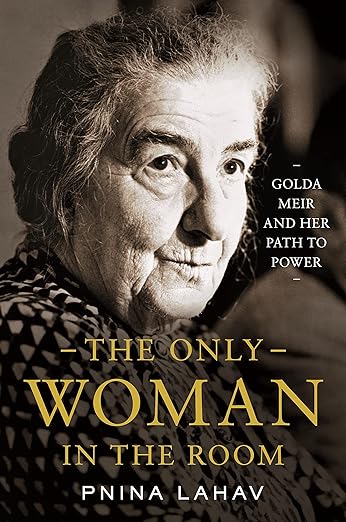After independence, Meir held key positions in successive Mapai-dominated governments. Despite her reluctance to return to Russia, she became Israel’s minister plenipotentiary to the Soviet Union (its ambassador, essentially). Her appearance at the Moscow Choral Synagogue for High Holiday services in 1948 drew a crowd of fifty thousand. When she returned to Israel she was appointed minister of labour, with responsibility for job creation and employment, the integration of immigrants, and the expansion of infrastructure and housing. In 1955, her then mentor Ben-Gurion urged her to run for mayor of Tel Aviv. At the time, the mayor was elected by the city council and Meir lost narrowly after the religious parties refused to back a woman (when she became prime minister she knew better, agreeing to their demands, such as the definition of Jewish identity by religion alone). In 1956 she became foreign minister, a position she held for close to a decade, under Ben-Gurion and then Levi Eshkol. She proved to be a nimble operator, earning a reputation for diplomatic intransigence.
Meir’s commitment to Jewish interests was unwavering. After Israel’s conquest of the West Bank, the Gaza Strip, East Jerusalem, the Sinai Peninsula and the Golan Heights in the Six-Day War of June 1967, she condemned a group of Hebrew writers and intellectuals who had questioned the morality of occupying those territories. ‘For me, the greatest morality consists of the Jewish people’s right to exist. Without that, there is no morality in the world.’ She regularly denied the existence of a Palestinian national identity: ‘There was no such thing as Palestinians,’ she told the Sunday Times journalist Frank Giles in 1969. After the Six-Day War, Arie Lova Eliav, a Knesset member and ally of Meir’s, travelled to the newly conquered territories; on his return, he wrote a pamphlet arguing that the West Bank and Gaza Strip should be restored and form the basis of a Palestinian state. Meir was furious when she read an interview in Time magazine in which he elaborated on these ideas. She summoned Eliav to her apartment and demanded that he disown the passages she found most offensive (she had underlined them in red). He refused, and was expelled from her circle.
Such behaviour was characteristic of Meir’s leadership style, which didn’t brook dissent, and of her resistance to engagement with Palestinians and the Arab world. She became even more determinedly set on this course after she became prime minister in 1969, at the age of 70, after Eshkol’s sudden death. When Nahum Goldmann, the president of the World Jewish Congress, arranged to meet Nasser in Cairo in 1970, Meir’s government intervened. She took an intense dislike to the progressive lawyer Shulamit Aloni, a young Knesset member for Mapai, when she described the Israelis as ‘conquerors’ after the 1967 war: ‘How dare you call Jews conquerors? We Jews are always underdogs.’
